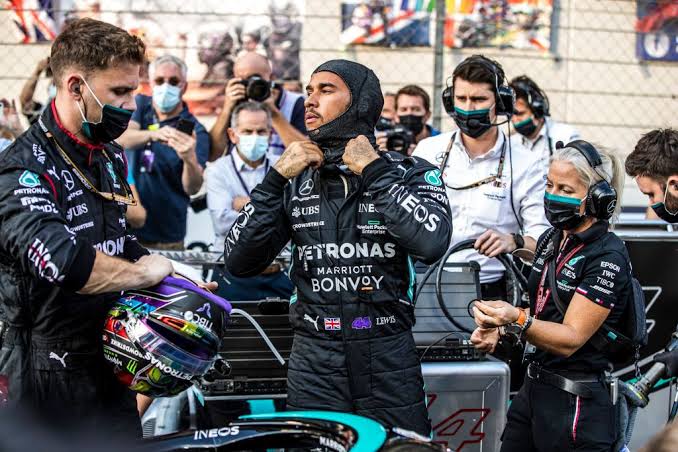
Bias That Could Cost Mercedes in the Future: Lewis Hamilton Replaced for Mexico GP Practice After Crash
In a shocking move, Mercedes replaced seven-time world champion Lewis Hamilton during the practice session for the Mexico Grand Prix, allegedly due to his crash in the previous race. While Mercedes claims this is a precautionary step, the decision raises critical questions about bias and team dynamics that could haunt the team in the future.
A History of Controversial Decisions
Mercedes has long been revered for its precision and strategic prowess in Formula 1. Yet, this decision to sideline Hamilton seems at odds with the team’s history of supporting its top driver through thick and thin. Hamilton’s crash at the previous Grand Prix was unfortunate, but drivers of his caliber are accustomed to bouncing back quickly. Why then would the team replace him for such a pivotal practice session? Could this signal a deeper issue within the team?
It’s easy to brush off this replacement as a minor decision, but F1 insiders and fans are buzzing with speculation. Is this part of a larger strategy to push new drivers forward? Or worse, is Mercedes demonstrating an inherent bias against Hamilton after his long reign at the top?
The Problem with Internal Bias
Bias in Formula 1 is not new. From favoritism toward certain drivers to internal politics that sometimes overshadow merit, teams have often been accused of making decisions that are not purely performance-based. Could Hamilton, a living legend in the sport, be falling victim to such bias?
Some fans argue that Mercedes is beginning to show signs of prioritizing younger drivers or those with less baggage. Hamilton’s advocacy for social justice and his vocal stance on various global issues might be perceived as polarizing in a sport that has traditionally stayed apolitical. Could it be that the team is subtly distancing itself from its most high-profile driver, citing performance reasons while ignoring his consistent success and iconic status?
A Slippery Slope for Mercedes
If Mercedes is indeed letting bias creep into their decision-making, it could be disastrous for their future. Hamilton is not just a driver; he is a brand. He commands a massive fanbase that aligns itself with Mercedes because of him. By sidelining him, even temporarily, the team risks alienating a global audience.
Moreover, what message does this send to Hamilton? After years of dedication and success, could Mercedes be signaling that they are ready to move on? If so, they might underestimate the ripple effects this decision could have. Other top teams would likely jump at the chance to bring Hamilton on board, while Mercedes could struggle to maintain its dominance without him.
Long-Term Consequences of Bias
Formula 1 is a sport where success is determined by a combination of talent, teamwork, and strategy. Introducing bias into that equation, whether intentional or not, can upset this delicate balance. Hamilton’s presence has been a cornerstone of Mercedes’ dominance for nearly a decade. If bias is pushing the team to look elsewhere, they could be undoing years of success in exchange for short-term gains.
Hamilton’s legacy in the sport and his cultural impact are undeniable. Replacing him, even in practice, sets a dangerous precedent that could cost Mercedes both on and off the track in the years to come.
Final Thoughts
While Mercedes may brush off Hamilton’s replacement as a routine decision, the implications are far-reaching. Bias, whether it’s against his age, his off-track activism, or simply an eagerness to groom the next generation, could spell trouble for the team’s future. For a sport as demanding as Formula 1, bias in any form is a liability, and Mercedes might be playing a dangerous game. Only time will tell if they’ve made a costly misstep in replacing a legend.




